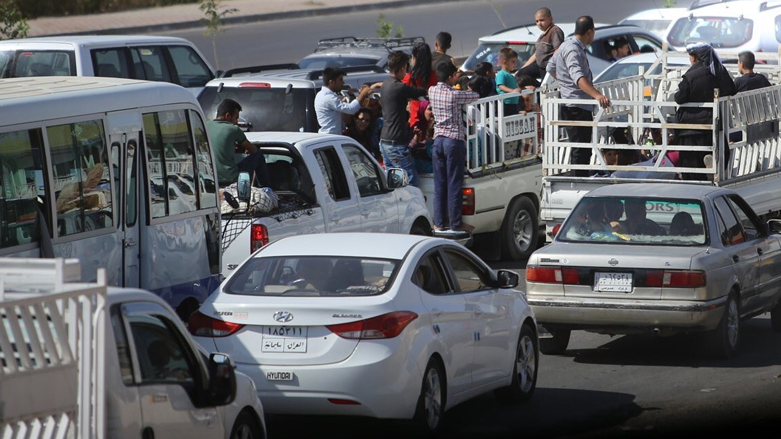Kurds displaced, some forcibly, from Kirkuk, surrounding areas reach 100,000
In a statement, the Iraqi Ministry of Displacement and Migration also reported there were instances of “forced displacement” of Kurdish families, notably in the town of Tuz Khurmatu, at the hands of Iraqi security forces.

ERBIL, Kurdistan Region (Kurdistan 24) – Roughly 100,000 Kurdish civilians have fled Kirkuk and its surrounding areas after Iraqi forces and the Iranian-backed Shia Hashd al-Shaabi militia assailed the disputed territory on Monday.
Erbil Governor Nawzad Hadi on Thursday reported that some 18,000 families had been transferred to camps in the Erbil and Sulaimani provinces since Monday.
In a statement, the Iraqi Ministry of Displacement and Migration also reported there were instances of “forced displacement” of Kurdish families, notably in the town of Tuz Khurmatu, at the hands of Iraqi security forces.
Many families are in dire need of assistance, and displacement is ongoing from Kirkuk, according to a Kurdistan 24 correspondent in Erbil, Hero Mawlodi.
Scenes of people fleeing the violence and threats spread across social media networks on Monday, with the Iraqi military incursion into Kirkuk being described as another Anfal campaign (Kurdish genocide) by some, including the Kurdistan Region’s Vice-President.
The number of displaced people since last Monday – close to 100,000, all of whom are Kurds – is expected to rise as the security situation remains unstable and civilians fear the threat of reprisals for their participation in the Kurdistan Region’s Sep. 25 independence referendum.
Iraqi forces and the Hashd al-Shaabi, also known as the Popular Mobilization Forces (PMF), seized the areas of Tuz Khurmatu, Khanaqin, Kirkuk, Sinjar (Shingal), and other disputed territories in the latest measure taken by the Federal Government of Iraq in retaliation for the vote.
Officials in Kurdistan and abroad have called for military actions to end and for all sides to engage in a dialogue to address unresolved issues.
“Concerned security agencies need to address the situation as soon as possible to allow displaced families to return home,” Minister of Displacement and Migration Jassim Mohammed Al-Jaaf said.
Editing by Karzan Sulaivany